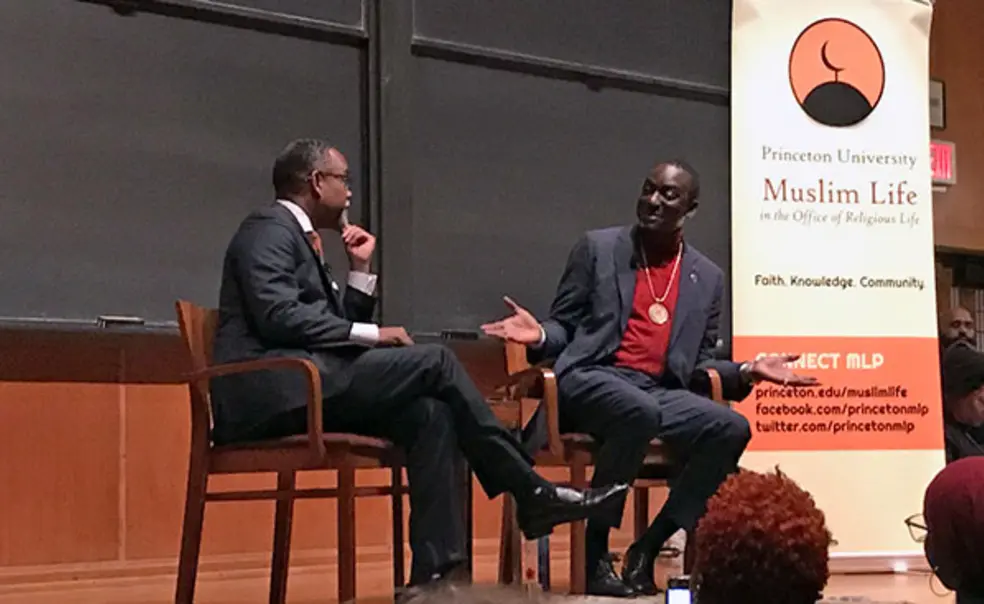Salaam, One of the Central Park Five, Shares Story of Exoneration and Faith
Racism is alive and well in America’s criminal justice system, said Dr. Yusef Salaam, a member of the exonerated Central Park Five, as he conversed with Professor Eddie Glaude Jr. *97 before a crowd of well over 400 students and community members who squeezed into a 350-seat auditorium in McCosh Hall Nov. 20.
“This wasn’t an anomaly: This is business as usual,” said Salaam, speaking of his experience as one of five black and Latino boys between the ages of 14 and 16 who were wrongfully convicted in 1990 of the rape and assault of a jogger in New York’s Central Park. “To look at America with eyes that can see, with ears that can hear, is to look at a place where there are two Americas — divided and unequal.”
According to Glaude, author of Democracy in Black: How Race Still Enslaves the American Soul, the five boys were victims of racist public sentiment and, despite inconclusive evidence, cast as “superpredators.” Salaam agreed that this narrative was imposed upon him—in part through full-page newspaper advertisements that had called for the deaths of the five boys. The ads had been paid for by Donald Trump, then a New York real-estate developer.
“For a story to be truly great,” Salaam said on the topic of President Trump, “you gotta have a great villain.”
The trial, and the nearly seven years he spent in prison, solidified Salaam’s Muslim faith. His faith in turn helped him to overcome bitterness, anger, and fear.
“Whatever hits me, I could never avoid,” Salaam explained. “And whatever misses me, I could never get. Once you understand this, your heart can be at ease.”
Salaam interprets his encounter with the criminal justice system as part of an ongoing and triumphant narrative—one in which his experiences have positioned him to inspire change.
“The Central Park jogger case is actually a love story between God and his people,” said Salaam. “It’s a story of a criminal system of injustice that’s on trial, and turned on its side to produce a miracle in modern times. It’s a story of a people who were buried alive and forgotten. The system forgot we were seeds. And we emerged like the Phoenix from the ashes.”










No responses yet